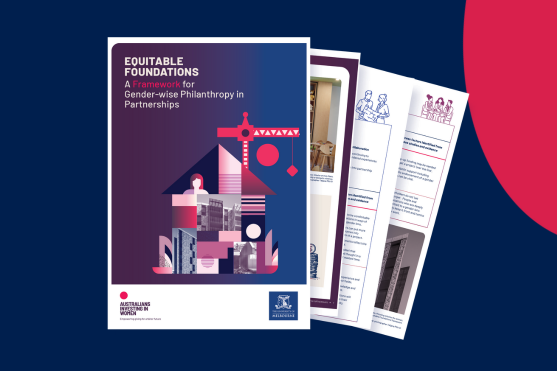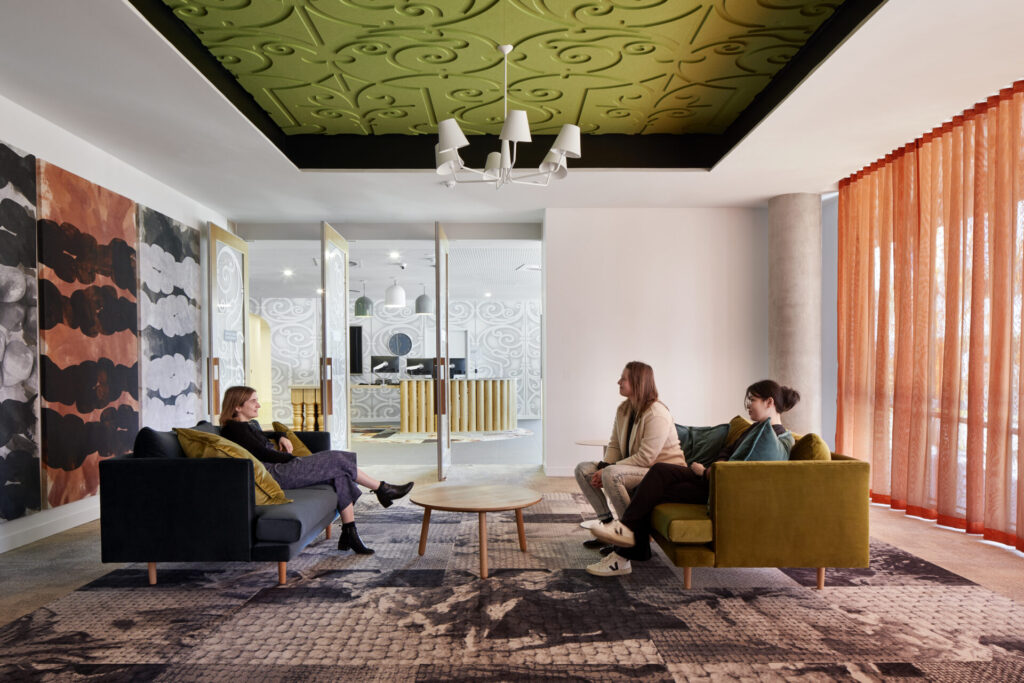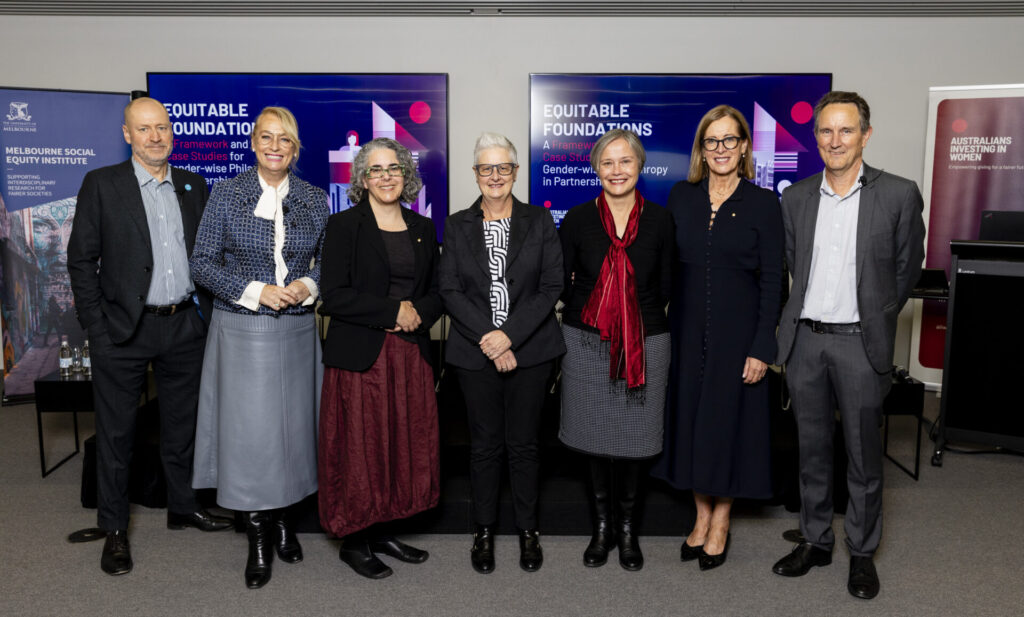New gender-wise resource launched to support philanthropic collaborations

Australians Investing In Women (AIIW) and the University of Melbourne’s Melbourne Social Equity Institute (MSEI) have launched a comprehensive resource to increase the impact of philanthropic and social investments.
Equitable Foundations: A Framework for Philanthropic Partnerships and the associated case study report were funded by the Paul Ramsay Foundation (PRF) and brought to life through a robust discussion featuring key sector voices. They included Melbourne’s Lord Mayor, Sally Capp AO, AIIW Board Member Dr Doug Hilton AO, PRF’s Chief of Alliances Liz Yeo, Senior Research Fellow at Melbourne Social Equity Institute, Dr Alexandra Williamson and the institute’s director, Professor Jo Barraket AM.
Informed by broader sector expertise, the framework draws on the experiences of funders and partners in projects supporting women’s housing – Viv’s Place in Victoria and My Home in Western Australia – to map out gender-wise principles and pathways that can be applied to any collaboration, seeking to positively impact social issues. Housing was used as an example, but the resource can on all types of sector projects.

Evidence both globally and locally indicates that among the many advantages, enhancing gender equality plays a crucial role in alleviating poverty and disadvantage. This new research and resource will help the philanthropic sector, other funders and partners improve the effectiveness of social investments by understanding and responding to disadvantage and gender inequality in their area of focus
Jo Barraket says: “The lenses through which we view the world affect what we prioritise, who we see and what levers we pull to create positive change. Increasingly, such change relies on partnerships and collaboration to bring the best combination of resources, experience and will to solving wicked problems.”
In Australia we have seen a strengthened commitment to gender equality through the 2023 Women’s Budget Statement, the establishment of the Women’s Economic Equality Taskforce and through development of the National Gender Equality Strategy.
This expectation of gender consideration is now extending into public and private partnerships, which have become increasingly important in delivering projects in healthcare, education and infrastructure. The Equitable Foundations Framework and Case Studies are designed for all philanthropic organisations and funders regardless of their area of focus, as gender inequality exists in every aspect of philanthropic endeavour.
Julie Reilly OAM, CEO of AIIW, says: “Gender inequality persists in all aspects of Australian life across the lifecycle. A gender lens can be used as a tool to hear from and empower people experiencing inequity and improves outcomes for everyone, not just women.

“Small but significant changes that bring women and girls into focus can maximise the impact of philanthropic investments in community and help create a fairer future.
“The Equitable Foundations Framework can support more rigorous analysis and decision-making by funders, boards, executives and people implementing change, and encourage effort and investment towards gender equality,” says Julie.
A parliamentary report found older women are one of the fastest growing groups of those presenting to homelessness services because of a lifetime of gendered inequality, income poverty, and caring responsibilities.
Philanthropic giving has the power to play a pivotal role in addressing these complex challenges and funders recognise this power can be amplified when they work in collaboration with other funders and key stakeholders to achieve an outcome that would not be possible alone.
The Equitable Foundations Framework provides a clear and practical roadmap to help philanthropic organisations to:
- apply a gender lens to partnerships and collaborations,
- include gender analysis in the design, delivery and measurement of projects
- better understand the ways that gender inequality plays out in areas of philanthropic investment and grantmaking, such as poverty, disadvantage and housing, and recognise the benefits of applying a gender lens.
Liz Yeo says: “The case for supporting women and girls has been well made by AIIW, and at this moment – when quality and focused philanthropic giving is essential to helping people and communities have what they need to thrive – we’re proud to support AIIW develop a framework to increase the understanding and application of gender lens principles in Australian philanthropic practice.”
Complementing AIIW’s existing suite of gender-wise resources, this new framework recognises that philanthropic partnerships and collaborations often develop organically, and that the parties may be at different stages of understanding and commitment to considering gender equality as part of their social impact.
Equitable Foundations Case Studies and Framework are available online.